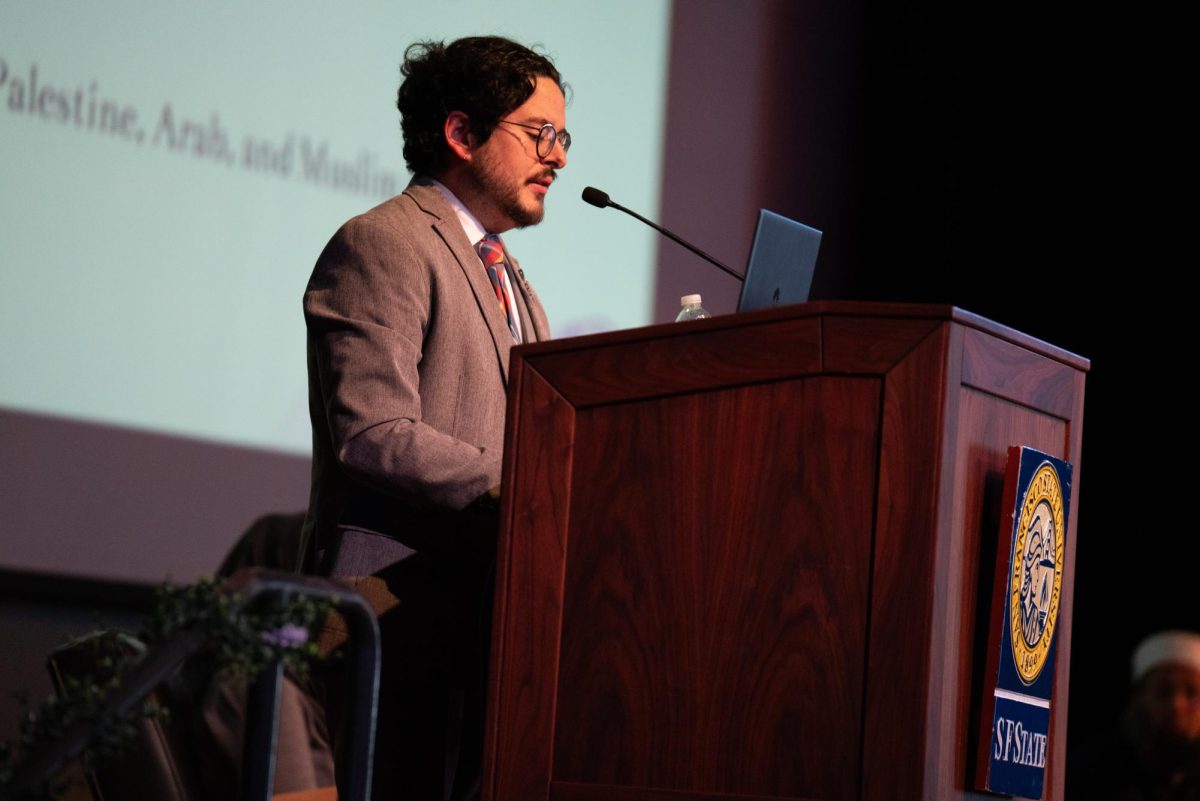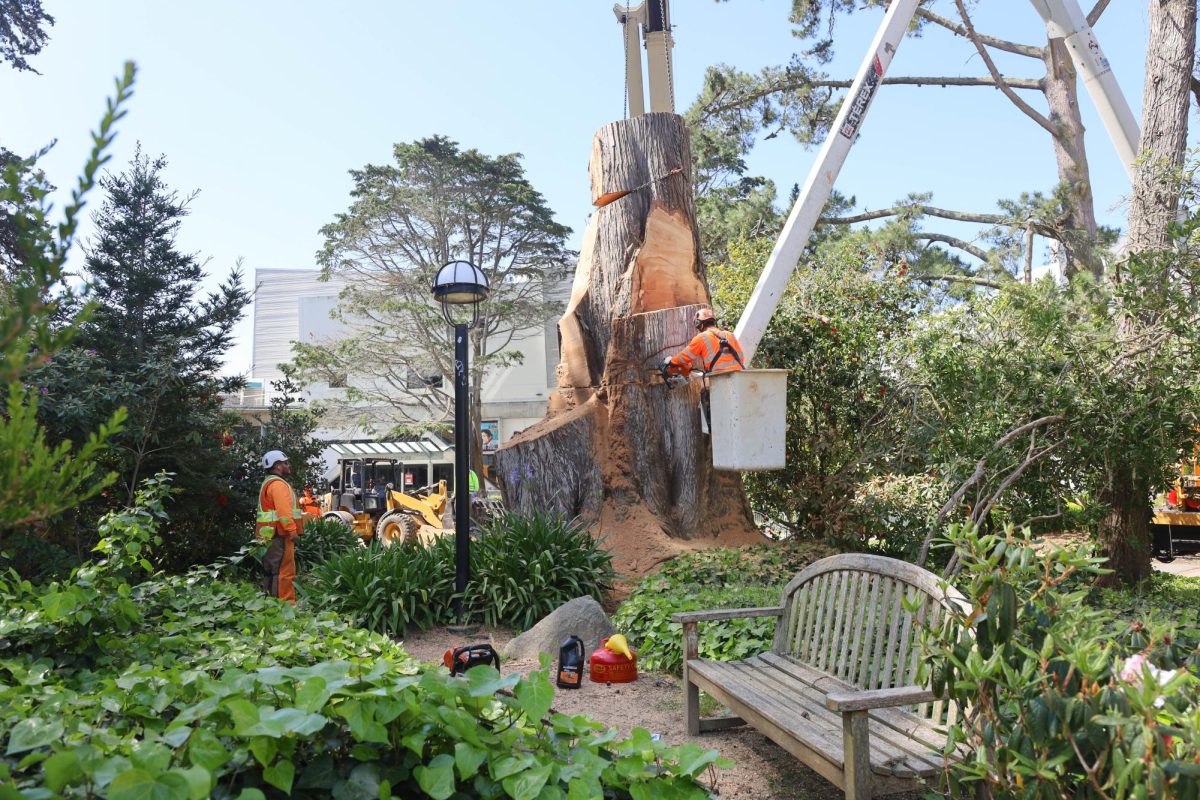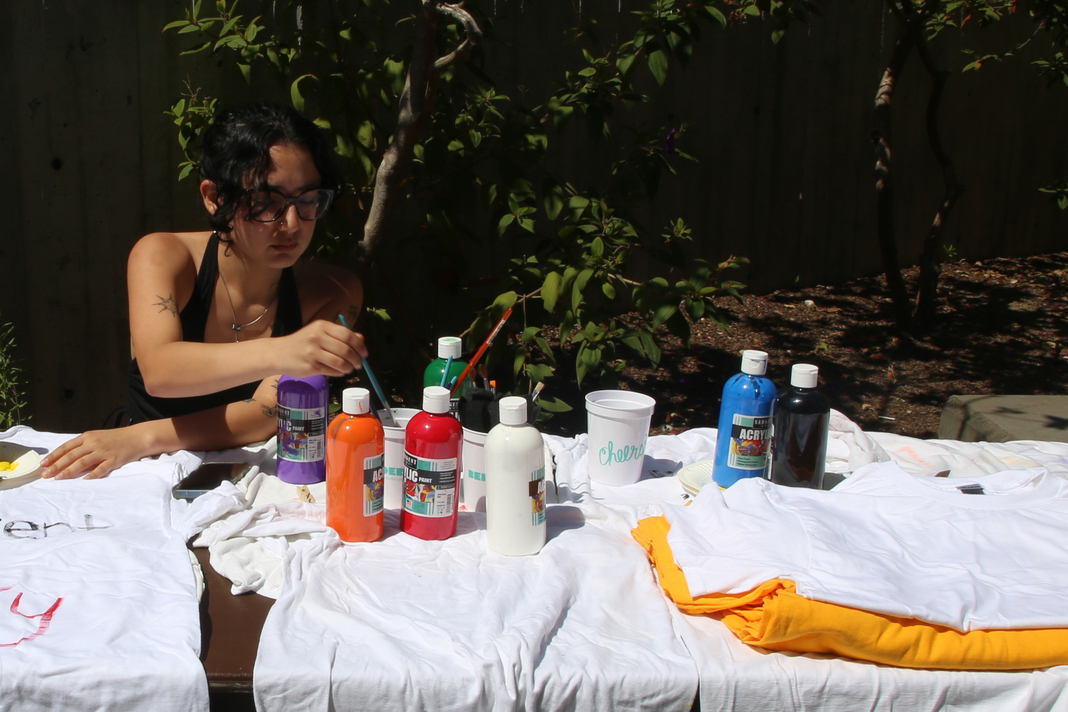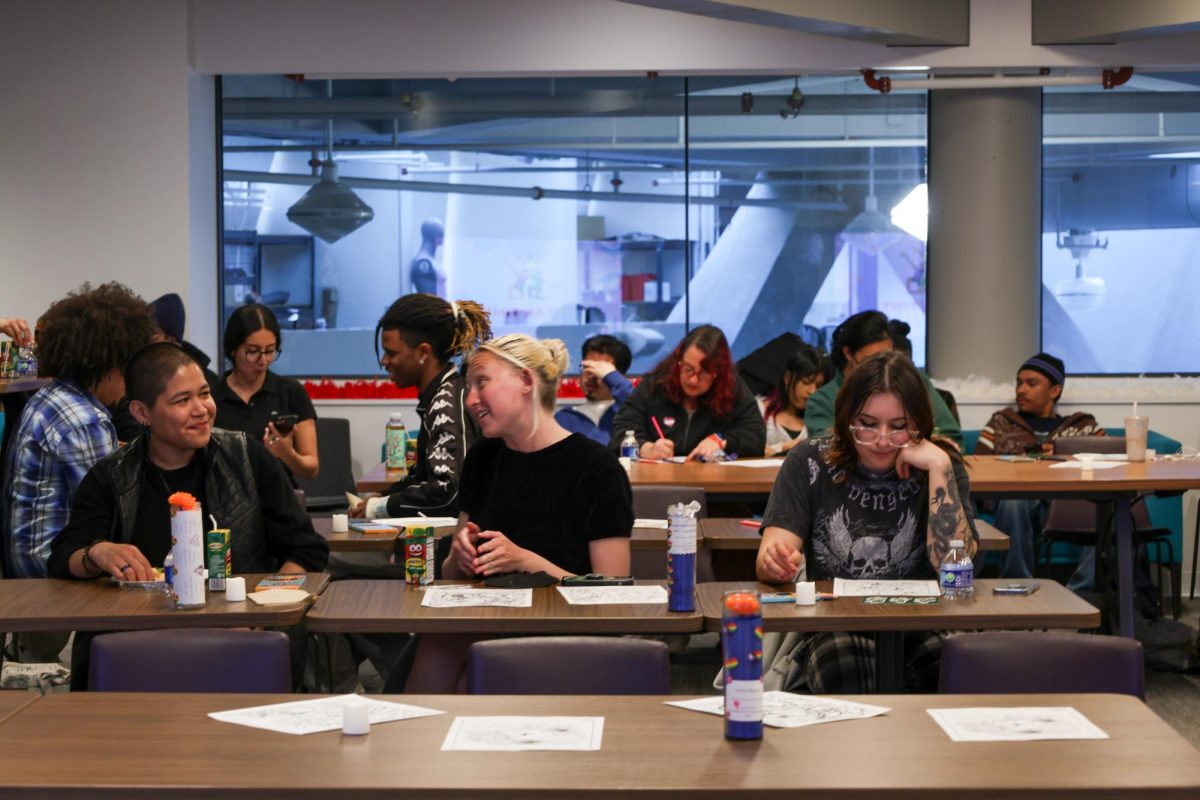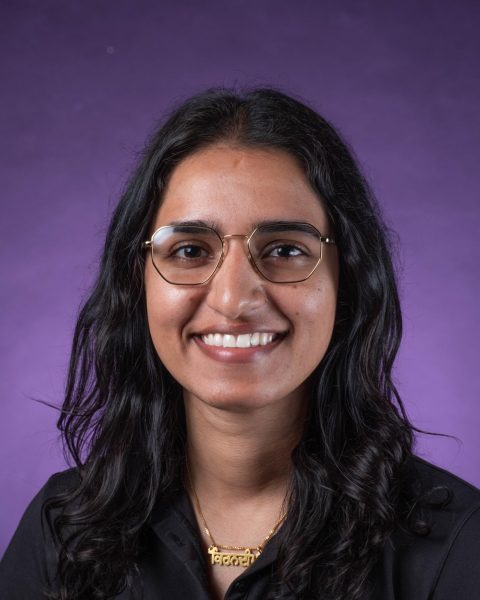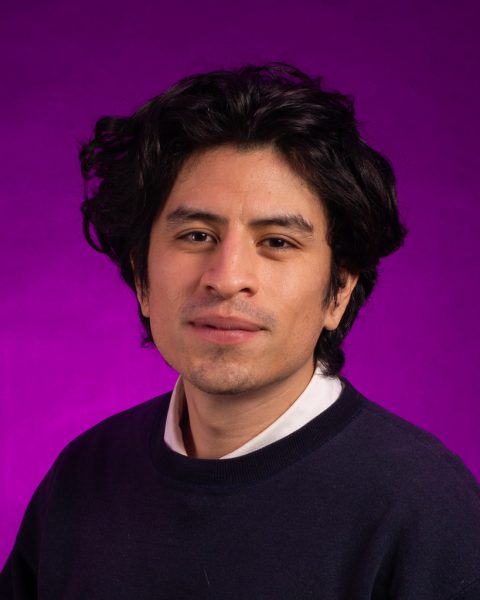Fourth-year student Amey Kulkarni at San Francisco State University is often mistaken as Muslim and has been called derogatory terms such as “terrorist” before. Kulkarni, who is non-Muslim, says he has been called a “terrorist sympathizer” for speaking up about the ongoing conflict in Palestine and other issues related to the Muslim-American diaspora. As a result of his experiences, Kulkarni is one of many students at SFSU who are seeking ideas and information on how to help the Palestinian community in a time of need.
The Muslim Student Association at SFSU hosted an event in Jack Adams Hall on Friday to discuss the escalating concerns of Islamophobia across the United States, especially about to the ongoing Israeli-Palestinian conflict.
The event, “Navigating Narratives: Islamophobia in the Shadow of Genocide,” hosted four panelists who spoke on several topics surrounding Islamophobia, including their own experiences, offering advice to attendees and answering questions submitted to them from the crowd.
The event was a semi-formal discussion that hosted Muslim and non-Muslim students from SFSU, as well as families wanting to see the panelists provide their thoughts on the topics of discussion.
Omar Zahzah, an assistant professor of Arab, Muslim, ethnicities, and diaspora studies at SFSU, said that he felt honored to be included as a panelist and take part in an open discussion with students.
Zahzah felt happy knowing that students on campus organized an event to call attention to the events occurring in Gaza and the resulting backlash in the United States. Zahzah hopes to see more events like this occur on campus in the future.
“[We should keep] doing events like this, because I do think that the tide is turning,” Zahzah said. “There is widespread public support for an end to the genocide, as well as for Palestinian freedom and an opposition to Islamophobia.”
Mufti Abdullah, a speaker at the event, was concerned with the appearance of protesters arriving at the event to disrupt the dialogue occurring between the panelists and students. However, Abdullah had a hunch that this would be a safe event for everyone to have a conversation about what is happening around the country and within the Bay Area.
“With the SFSU students, you’d hope that there’s continuous education — that they’re also trying to learn more about the conflict, trying to learn more about some of the dynamics behind it, and you want them to broaden the horizons,” Abdullah said.
Abdullah used his perspective as an Islamic scholar to bring a new perspective to students who were aiming to be more informed about the situation occurring in Gaza, as well as the discord that has occurred in the United States.
Somaya Furkhunda, president of SFSU MSA, was grateful to all the attendees, both Muslim and non-Muslim, who were able to make it to the event to show their support.
Furkhunda says she saw this event as an opportunity for those seeking support or wanting to provide aid to use the information provided to create a better environment for students at SFSU.
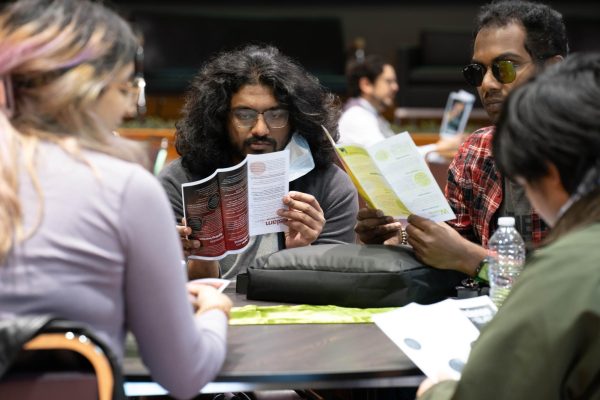
“MSA has opened a path for [Muslim students] to take a step forward of a shadow of some phobia in their school — or outside the school, or anywhere that they are facing Islamophobia — to take a step forward and let their wings open and help us help them in any way possible,” Furkhunda said.
After attending the event, Kulkarni said he had learned much from the panelists and aims to use the information provided to enact change in his way.
“I will be more outspoken about being opposed — being fundamentally and vehemently opposed — to the very concept of Islamophobia as we see it in practice,” Kulkarni said.
Kulkarni attended the event in support of efforts to inform the public about Islamophobia and ensure those who could use the knowledge use it resourcefully.
“I will try and help redirect victims of Islamophobia to the right resources so that they can avail said resources and stay safe and keep other victims safe if the time comes and when the time comes,” Kulkarni said.




